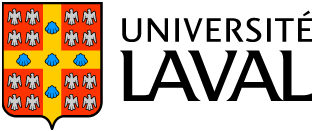Mardi 27 mars
by Rosita Di Peri, Università di Torino
Abstract
The communities in Lebanon are difficult to define: They are multi-faceted entities at the heart of the socio-political system, and the country’s 1926 Constitution, its amendments and the 1943 National Pact have provided them with a legal framework for their institutionalisation. In Lebanon’s multi-communitarian society, the divisions between communities have well-defined and demarcated borders, and the prerogatives of individuals and groups are reflected in the existence of specific communitarian institutions. Over the years, communities have become ‘spaces’ where the dynamics of production and re-production of the power and techniques of social control manifest themselves through the strict interaction between the communitarian system at the social level and the consociative system at the political one. Such ‘spaces’ are clearly bounded by the juridical, social and religious rules that shape them, which in turn crystallises identities and prevents changes. Among the 18 Lebanese communities, the Maronite community, which is central to the Lebanese socio-political system, is not an exception to the rule. On the contrary, the relevant role that the community has historically assumed made the control over its members more and more strict and pervasive. Over the years, this situation has helped the community’s (political and religious) élites to hide the internal problems and the progressive marginalisation of the community at demographical, political and economic levels and nourished, instead, the narrative of Maronite social cohesion, on the one hand, and of economic supremacy, on the other hand.
Assuming, as a starting point, that communities in Lebanon are ‘spaces’ where various techniques of domination and control are reproduced to prevent their members from questioning the religious or political hegemony, our hypothesis is that the Maronite community’s marginalisation process has created spaces in-between borders in this community where new discourses and dynamics arise. These ‘new frontiers’ are physical or mental spaces where individuals seem to question the communitarian system, albeit for two opposing reasons: on the one hand, to stop the system of domination and control in order to overcome the communitarian system, and on the other hand, paradoxically, to ask for ‘more community’, to continue to take advantage of the benefits of the patronage system.
The paper will analyse the processes of creation of these spaces in-between borders and their internal dynamics by relying on fieldwork carried out in Lebanon between 2014 and 2017, primarily in the Maronite village of Ghebele in the Kesrowan.
Rosita Di Peri is Assistant Professor in the Department of Culture, Politics and Society at the University of Turin, Italy, where she teaches the course of ‘Politics, Institutions and Cultures of the Middle East’. Her research interests are democracy and authoritarianism in the Middle East with a focus on Lebanon and Tunisia. She is the scientific coordinator of the ‘Understanding the Middle East’ Summer School (http://www.to-asia.it/tomideast) and a member of the advisory board of SeSaMO (Italian Association of Middle Eastern Studies). She has published several articles in both Italian and international journals, including ‘Rivista Italiana di Politiche Pubbliche’, ‘Rivista Italiana di Scienza Politica’, ‘British Journal of Middle Eastern Studies’, ‘Politics Religion and Ideology’, ‘Oriente Moderno’, ‘Mediterranean Politics’ and ‘Meridiana’. She has also authored a book on the politics of contemporary Lebanon (Il Libano contemporaneo, Carocci, Roma 2009 second edition 2017, in Italian) and co-edited several special issues and books, the most recent being ‘Lebanon Facing the Arab Uprisings. Constraints and Adaptation’ (Palgrave, 2017).
Voir l’affiche de l’activité

